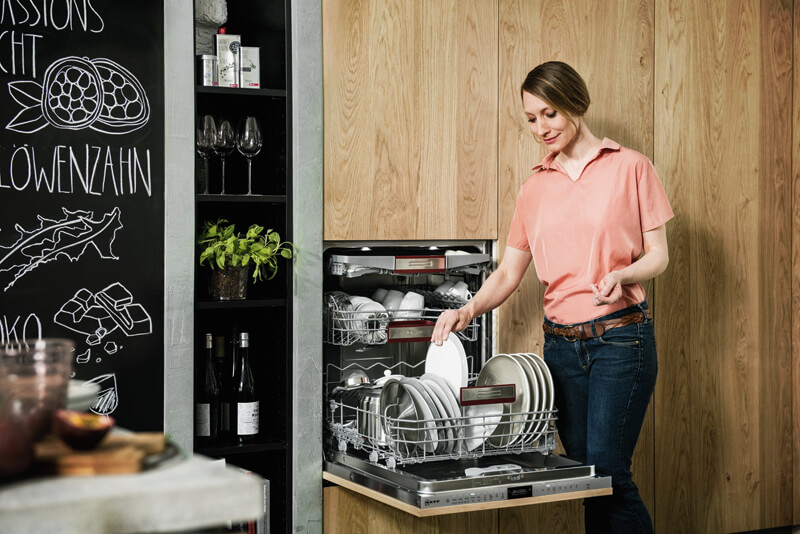When running a commercial kitchen, ensuring cleanliness and efficiency is critical. Undercounter dishwashers are essential for cafes, restaurants, and bars that need quick and hygienic dishwashing without taking up too much space. However, choosing the right one requires careful thought. In this blog, we'll dive into the key points to consider when buying an undercounter option.
An incredibly versatile equipment that can be used to cook a wide variety of foods and ensures consistent cooking results. Browse our collection of Griddle Plates.
- Assess Your Kitchen Needs
Before purchasing, evaluate your kitchen's specific needs. Consider factors like the volume of dishes, the types of utensils you use, and the space available. Undercounter options are perfect for small—to medium-sized establishments. Still, choosing a model that aligns with your kitchen's output requirements is crucial.
- Size and Dimensions
Space is a vital consideration. Measure the area where you plan to install the dishwasher and ensure it fits comfortably under the counter without interfering with workflow. Standard models typically range from 24 to 30 inches wide, but smaller alternatives are available for compact kitchens.
- Washing Capacity
The capacity of an undercounter equipment is usually measured in racks per hour. Assess your kitchen's workload and choose a model to handle your peak demand. For example:
- Low-volume kitchens might need 15–20 racks per hour.
- High-volume kitchens could require 30+ racks per hour.
- Energy Efficiency
Energy-efficient dishwashers save money and reduce your kitchen's environmental impact. Search fo products with an Energy Star certification, as they use less water and electricity while maintaining top performance. Check the power consumption (kWh) and water usage per cycle to ensure cost-effectiveness.
- Water Usage
Water usage varies across models. Choosing a dishwasher with low water consumption can significantly reduce your water bills. Look for machines that use advanced water-saving technologies like recirculating rinsing systems or pre-rinse cycles.
- Build Quality and Durability
Commercial kitchens demand heavy-duty equipment. Select a commercial undercounter dishwasher made of high-quality materials like stainless steel, which is corrosion-resistant, durable, and easy to clean. Pay attention to the durability of components such as the rinsing arms, nozzles, and door seals.
- Wash Cycles and Settings
Different cleaning requirements call for different settings. Consider models with versatile rinsing cycles such as:
- Quick Wash: Ideal for lightly soiled dishes.
- Intensive Wash: For heavy-duty cleaning of greasy or baked-on residues.
- Eco Mode: Saves water and energy during low-volume operations.
Some advanced models also offer customisable settings to meet specific kitchen demands.
- Temperature Options
Undercounter offerings come in two main types based on temperature:
- High-temperature dishwashers: They use hot water (around 180°F) to sanitise dishes. They often require a booster heater to deliver fast drying.
- Low-Temperature Options: Use chemical sanitisers instead of high heat. They are cost-effective but may require more maintenance to ensure proper sanitation.
Choose a model based on your kitchen's hot water supply and sanitisation preferences.
- Noise Levels
A noisy undercounter dishwasher in Australia can disrupt the ambience of your establishment, especially in open kitchens. Look for models with noise levels under 60 decibels (dB) for a quieter operation. Some manufacturers offer insulated designs to minimise noise further.
- Ease of Operation
An undercounter dishwasher should be user-friendly for your staff. Features like intuitive control panels, digital displays, and one-touch operation simplify use and reduce training time. Clear indicators for rinsing cycles and maintenance needs are also beneficial.
- Maintenance and Cleaning
Regular maintenance ensures longevity. Choose a product with features like:
- Self-cleaning filters to reduce the manual cleaning effort.
- Removable wash arms for easy maintenance.
- Accessible components to simplify troubleshooting.
Consider manufacturers known for offering spare parts and reliable after-sales support.
Provide a stable environment with consistent temperature and humidity, crucial for the fermentation process, ensuring uniform rise and texture in the dough. Check out our Dough Proofers & dehydrators here.
- Drainage System
Check the appliance's drainage system. Gravity drains require the unit to be installed above the drain line, while drain pumps allow more flexible placement. Opt for a model that suits your kitchen's plumbing setup.
- Energy and Water Supply Compatibility
Ensure the undercounter dishwasher for sale is compatible with your kitchen's existing utilities:
- Voltage: Most models require 120V or 240V connections.
- Water Supply: Confirm the required water pressure and temperature specifications.
- Rack Configuration
Undercounter options come with various rack designs for different dish types:
- Standard Racks: Suitable for plates, bowls, and utensils.
- Specialised Racks: Designed for glassware or large trays.
Select a configuration that fulfils your requirements and allows for efficient loading and unloading.
- Advanced Features
Modern cleaners offer innovative features that enhance functionality:
- Automatic Detergent Dispensers: Ensure consistent cleaning results.
- Heat Recovery Systems: Capture waste heat to preheat water, reducing energy costs.
- Intelligent Connectivity: Allows remote monitoring and diagnostics via mobile apps.
- Ventilation Requirements
Consider the ventilation needs of the product you buy from LCE – the best undercounter dishwasher, especially for high-temperature models. Proper ventilation prevents excessive steam buildup and maintains a comfortable kitchen environment. Some models come with built-in condensers to manage steam effectively.
- Cost and Budget
While the starting expense is a crucial factor, think about the long-term expenses:
- Potential replacement parts
Investing in a reliable, energy-efficient model may have higher initial expenses but will save money in the long run.
- Brand Reputation
Select a trustworthy brand with a great reputation for quality and customer support. Popular brands for undercounter options include Hobart, Winterhalter, and Miele. Research reviews and seek recommendations from industry professionals.
- Warranty and Support
A solid warranty protects your investment. Look for manufacturers offering comprehensive warranties covering parts and labour. Trustworthy user support guarantees the quick resolution of any issues.
- Compliance with Health and Safety Standards
Following all the health and safety regulations is non-negotiable in commercial kitchens. Ensure the undercounter dishwasher meets local food safety standards and sanitation requirements. Models with NSF certification guarantee hygienic cleaning results.
- Scalability
If you plan to expand your operations, consider the product's scalability. Some models allow integration into larger washing systems, providing flexibility for future growth.
- Portability and Installation
Check if the product is portable or requires permanent installation. Portable models are convenient for temporary setups, while installed units offer a more permanent solution for fixed locations.
Get a wide array of food options, allowing diners to choose what they like best. Check out our Buffet and Servery Stations.
- Environmental Impact
Eco-friendly options are increasingly important. Look for appliances made from recyclable materials and equipped with water-saving technologies. Reducing your kitchen's carbon footprint can also enhance your brand image.
Conclusion
Choosing the right commercial undercounter dishwasher for your commercial kitchen is a significant decision. Considering the abovementioned factors, you can find a model that meets your needs, enhances efficiency, and ensures long-term value for your business. Take the time to evaluate your options, and don't hesitate to consult industry experts for guidance. A well-chosen undercounter equipment will be a reliable workhorse for years to come.






